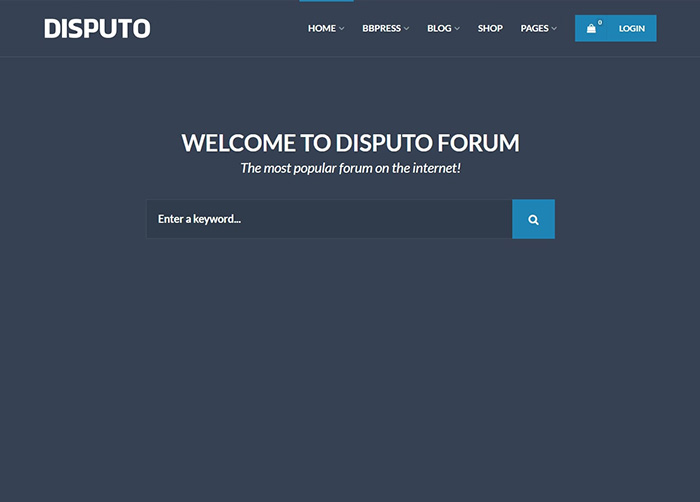A Guide to Choosing Real Estate Management Website Templates
When it comes to a Real Estate Management Website, having a professional, functional, and visually appealing website is essential. Whether you’re a property manager, real estate agent, or investor, the right website template can help you attract clients, manage properties, and grow your business.
This guide will help you navigate the process of choosing the perfect real estate management website template, covering essential features, design tips, and what to look for when selecting a template.
Look at our earlier post on Choosing the Perfect Family Website Template for Every Family, where we guide you through creating a family website. It’s a fantastic way to bring your family closer and maintain strong connections with everyone!
Understand Your Website’s Purpose

Before diving into templates, identify the primary purpose of your website. Do you want to showcase properties for rent or sale, manage bookings, or collect client inquiries? Your objectives will guide the selection of features and the design elements you need. Here are some common purposes for real estate management websites:
- Showcasing property listings
- Allowing online bookings or inquiries
- Providing property management services
- Displaying company information and contact details
- Offering real estate market insights and blogs
Knowing your primary goals will help you choose a template that aligns with your website’s requirements.
Essential Features of a Real Estate Management Website
When selecting a template for your real estate management website, look for features that will meet your needs and enhance user experience. Here are some must-have features:
- Responsive Design: The template should be mobile-friendly and adaptable to different screen sizes. This ensures users have a seamless experience on smartphones, tablets, and desktops.
- Property Listings: The template should include options for displaying property details such as images, descriptions, price, location, and contact information.
- Advanced Search Functionality: Users should be able to search properties based on criteria such as location, price, type, and number of bedrooms. Filters make it easier for visitors to find what they’re looking for.
- Lead Capture Forms: Including contact forms, newsletter subscriptions, and inquiry forms will help you collect leads and communicate with potential clients.
- Map Integration: A template with Google Maps integration allows users to see the exact location of the properties, adding value and convenience.
- SEO Optimization: SEO-friendly templates help your website rank higher in search engine results, increasing visibility and attracting more traffic.
- Multi-Language Support: If you are targeting a diverse audience, choose a template that supports multiple languages to cater to different user demographics.
- Content Management System (CMS) Compatibility: Ensure the template is compatible with popular CMS platforms like WordPress, Joomla, or Drupal, for easy content updates.
Design Tips for Real Estate Website Templates
The design of your website plays a significant role in user engagement and conversion rates. Here are some design tips to help you choose the right template:
- Clean and Modern Layout: To make your website look professional, choose a template with a clean and minimalist layout. Avoid cluttering the homepage with too much information; instead, focus on key elements like featured properties, call-to-action buttons, and contact forms.
- High-Quality Images: Real estate is a visual industry. Select a template that allows you to prominently showcase high-quality property images. This will give potential clients a better view of what you’re offering.
- User-Friendly Navigation: Ensure the template provides an easy-to-navigate menu structure. Categories should be clearly defined, and key pages like property listings, contact information, and about us should be easily accessible.
- Color Scheme and Branding: The template’s color scheme should align with your brand’s colors. Consistency in colors, fonts, and logos across the website creates a cohesive look that reinforces your brand identity.
- Customizability: Look for a template that allows you to customize colors, fonts, and layout. This flexibility will help you create a unique website that stands out from the competition.
Consider the Platform for Your Real Estate Management Website templates

Different platforms offer various templates, each with its advantages and limitations. Here’s a look at some popular platforms where you can find real estate management website templates:
- WordPress: WordPress has a vast array of templates (themes) suitable for real estate websites. It is easy to customize and has plugins for additional functionality, such as property listings, SEO, and forms.
- Wix: Wix provides drag-and-drop functionality, making it user-friendly for beginners. It also offers pre-designed real estate templates that you can customize to suit your brand.
- Squarespace: Squarespace is known for its visually appealing templates. While it offers fewer customization options compared to WordPress, its templates are sleek and stylish.
- Shopify: Although primarily an e-commerce platform, Shopify can be used for real estate management if you want to integrate online payment for services like property bookings.
- Joomla and Drupal: These platforms offer advanced customization but may require a higher level of technical skill.
Choose a platform that aligns with your skills and the level of customization you need for your website.
Factors to Consider When Choosing a Template
Here are some additional factors to keep in mind:
- Budget: While many free templates are available, paid templates often come with better support, more features, and higher-quality designs. Decide on a budget for your template purchase.
- Template Reviews and Ratings: Look at reviews and ratings for the template. This will give you insights into its performance, ease of use, and support.
- Customer Support and Documentation: Opt for a template that comes with good customer support and detailed documentation. This is particularly important if you are new to web design and may need help setting up your site.
- Page Load Speed: A slow website can deter visitors. Choose a template that is optimized for fast loading times to improve user experience and SEO.
Top Real Estate Management Website Template Recommendations

Here are some recommended templates to consider:
- RealHomes (WordPress): A highly customizable WordPress theme that offers advanced property search options, Google Maps integration, and a powerful admin panel.
- WP Residence (WordPress): This theme is perfect for real estate agents and companies, with various customization options and property management features.
- Zillow Clone (HTML/CSS): For those familiar with coding, this clone template allows you to build a website similar to Zillow’s, with property listings and advanced search functionality.
- Wix Real Estate Template: Wix offers various templates specifically designed for real estate. Their drag-and-drop builder makes customization easy.
- Divi Theme (WordPress): Divi is a multi-purpose WordPress theme with a drag-and-drop builder that allows for complete customization. You can create a real estate management website from scratch using its modules.
Testing and Finalizing Your Template
Before finalizing your choice, test the template’s demo version to see if it meets your expectations. Pay attention to the following aspects:
- Mobile Responsiveness: Ensure that the template looks good and functions well on mobile devices.
- Navigation and User Experience: Check how easy it is to navigate through the website. Are important features easy to find?
- Loading Speed: Test the demo for loading speed. A fast-loading template will keep visitors engaged and improve your SEO rankings.
- Browser Compatibility: Verify that the template works well on various web browsers (Chrome, Safari, Firefox, Edge).
Conclusions
Choosing the right real estate management website template can significantly impact your business’s online presence. A template that aligns with your goals provides essential features and offers a user-friendly design that will help you create a professional website that attracts clients and enhances your brand.
Keep in mind the platform, design, customization options, and necessary features as you make your selection. With careful consideration, you’ll find the perfect template to help your real estate business thrive online.







